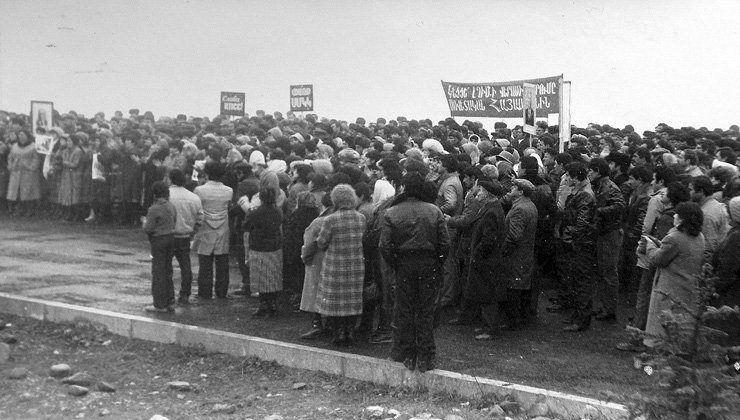Women in Yemen are living the realities of a violent authoritarian crackdown and continued repression. Despite this, Nadia Al-Sakkaf tells us how women are continuing to mobilise and calls for strengthened international support for Yemeni women activists to be able to continue their work to be heard.
Being a woman leader in Yemen calling for gender equality and peace is a dangerous job. After years of devastating war, the people of Yemen want peace. But in order to prevent violence and establish sustainable peace, women’s voices must be heard.
Yemeni women activists need the support of the international community. Just last month on February 25, a UK-led resolution acknowledging conflict-related sexual violence was adopted by the United Nations Security Council. Resolution 2511 (2020), informed by a United Nations Panel of Experts’ report, outlined the atrocities faced by Yemeni women, including the use of rape, torture, arbitrary arrest and harassment.
Women in Yemen, like their counterparts in the Middle East, currently face a unique and threatening context: a combination of patriarchal violence and rising authoritarianism.
Before this current conflict, there were signs of change. The 2011 Yemeni Spring uprising was a watershed moment. After the peaceful revolution, women secured almost 30 percent representation in nation-wide talks held to establish a formal government transition. An outcome of the National Dialogue process was to set a 30 percent quota for women for all future elected and non-elected decision-making positions. Women demanded access and, as a result, influenced policy. Their voices were heard.
In 2014, I was appointed Minister of Information in Yemen. I was the first woman ever to be appointed to that position. It was a glass-ceiling shattering announcement. The Ministry of Information had long been considered a man’s domain.
But since then, not only has progress stalled, it has been all but obliterated by war. According to the 2017 World Economic Forum Gender Gap Report, women leaders made up only 5.7 percent of Yemen’s top legislators, senior officials, and managers. Similalry, in 2015, women’s participation in the formal economy was estimated by the World Bank at just 6.14 percent.
For the few women who managed to gain power in Yemen, they faced multi-dimensional challenges including social, legal, and institutional discrimination and violence. Any progress made on the number of women in leadership positions did not change the predominantly patriarchal attitudes towards women in Yemen.
Women in Yemen, like their counterparts in the Middle East, currently face a unique and threatening context: a combination of patriarchal violence and rising authoritarianism
Women in the Middle East, even in times of relative peace, face discrimination and violence. Now, violent crackdowns by authoritarian regimes and non-state actors are part of a wider wave of repression against women and civil liberties in general.
In the early stages of the Yemeni conflict, I was one of the first to be targeted. I received texts and calls from the Houthis armed militia telling me that I would regret my public condemnation of their actions. I was followed by cars with tinted windows. My offices were raided. Then, they came with guns to all the media outlets and the Houthi commander directly threaten to kill me. I was forced to flee the country.
My experience is not unique. Women working for peace and gender equality in Yemen, and throughout the Middle East, face travel bans, are beaten, arbitrarily detained, prosecuted, imprisoned or threatened with death – all in an attempt to silence their voices. This month the Houthis abducted seven female school principals. This insidious strategy, not only puts women activists at risk today, but it also aims to derail future progress towards gender equality and peace.
After leaving Yemen, I attempted to work with other government members in exile. When I raised the issue of women’s participation in the peace process, I was told: “It is not the time for women.”
But women need to be part of the peace negotiations. When women are involved in peace processes, peace is more likely to be reached and the resulting peace is more long-lasting.
I am in awe of the strength of Yemeni women. Yemeni women, with their own government failing to advance gender justice, are mobilising and securing international support to continue their work. Yemeni women are building alliances, regardless of political backgrounds or religious affiliations. Yemeni women, in the face of intimidation and violence, are calling for equal representation at the peace negotiations’ table.
Women working for peace and gender equality in Yemen, and throughout the Middle East, face travel bans, are beaten, arbitrarily detained, prosecuted, imprisoned or threatened with death – all in an attempt to silence their voices
UK leadership in the Yemeni peace process is welcomed and its role in Resolution 2511 (2020) is to be applauded. However, it takes more than a resolution that merely acknowledges the existence of acts of violence against women for the violence to stop.
The UK government must go a step further and call for protection mechanisms for women activists, both inside and outside Yemen, who are repeatedly subjected to harassment and violence because of their political activities. The UK should invest in women’s power and leadership and directly fund Yemeni women-led organisations. And the UK should support Yemeni women in their call for equal representation at the peace table.
Women are demanding to be heard. Despite attempts to silence us, now is the time for women.
Image credit: Al Jazeera English (CC BY-SA 4.0)
The views, thoughts and opinions expressed in this blog post are those of the author(s) only, and do not reflect LSE’s or those of the LSE Centre for Women, Peace and Security.





